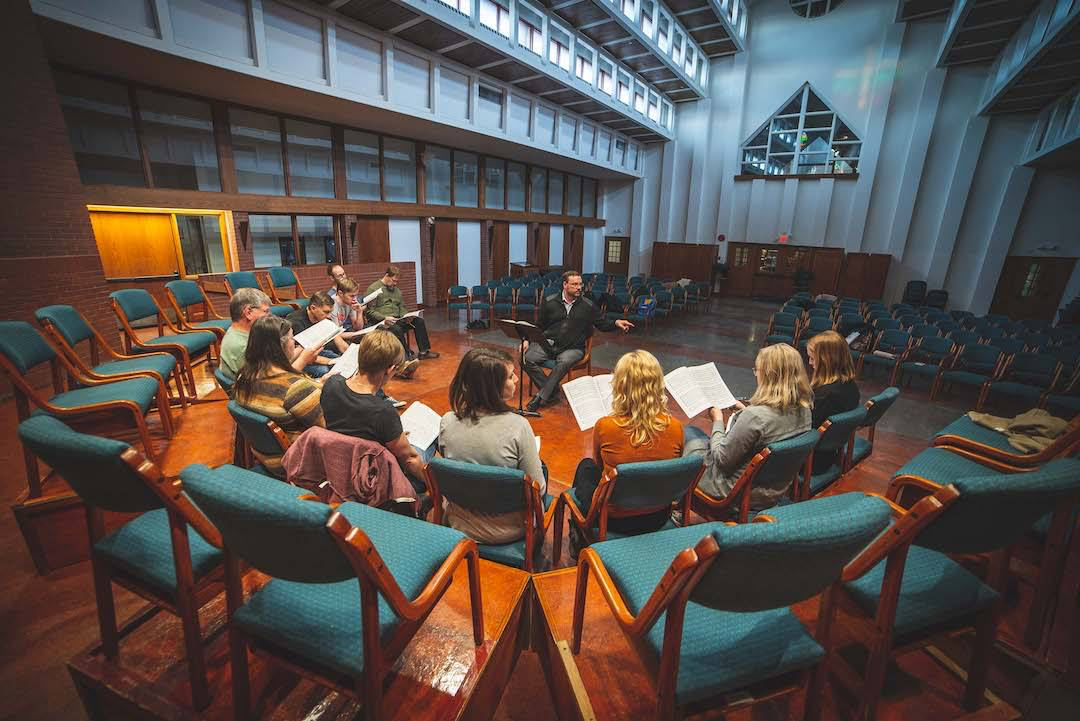Music, and being a choral conductor, is a calling. It is never easy, and it is so sensitive to the balance of many forces. In the end I chose to be a musician because I felt I had something to offer, and have viewed my life as being in service to music and family.
One of my major activites as a musician is learning how text and subtext combine to make a message. A message to hold onto is worth so much – it is, perhaps, the most important way we serve music – by arousing the emotions (affekt) of the listener. While every composer is different, they are often messaging pretty consistently. Being able to interpret those messages often takes a good long while, years even, and that work can’t really be put onto a resume. For instance, there has not been one year of my life since the age of 10 that I haven’t played, sang, or studied Bach. Just as any composer has a lifetime to compose in, it takes we musicians a lifetime to understand those composers. Even then, we don’t always succeed, but we find the cracks that shine a light in a dark corner.
My understanding of any piece has changed so much over the last two decades, and so have the singers I’ve performed it with. It is a completely different thing to perform as a 30 year old than as a 40 year old, singing, conducting, or playing. Each of those performances is really a snapshot of a longer trajectory and I’m sure I’ll see any piece differently by the time I’m 50.
If text and music relate to each other creating subtext, it is music that defines subtext, which can often manifest as a composer’s opinion on the text. Is the composer being sincere, ironic, sarcastic, or even in disagreement with the text on the page? It is the subtext which ultimately defines the emotional (and sometimes intellectual) position of music for the performer and listener alike.
That is how I measure success of a performance – it is whether the listener can identify and be moved by the subtext. I’ve heard many performances lately (mostly online) which were lovely and perfect in so many grammatical ways, but lacked acknowledgement of the subtext of the music being performed. As such, the experience of the piece just doesn’t carry enough weight. A choir can give the most cosmetically accurate performance possible, if it lacks the essential element that allows music to be a relative of the listener’s experience the mark has been missed.
That leads me here : I’ve spent a lifetime learning how to interpret composers whose music has really spoken to me – and I’m learning to leave certain styles of music alone because I don’t feel compatible with the subtext. I’ve reached a point where I want to concentrate more on particular styles of music, and I want to encourage everyone to think hard about that. It is good to embrace much, but eventually there must be some paring down. We have more to offer by doing what we excel at rather than what we do not. For me, that means continual pursuit of subcontext, continual examination and continual observance of composer’s methods, and pursuing what truly interests me. That is likely the best way I can serve music. So, after a performance career now in it’s 37th year, it is clear I’m to start making choices with these things in mind.
If you could concentrate on just a few composers for the rest of your life, say five, who would they be?
